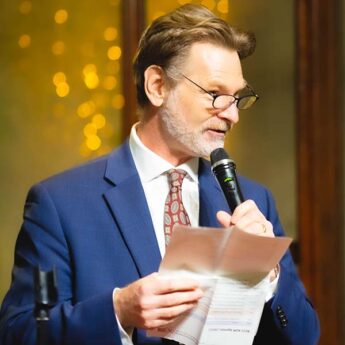One of the most exciting things about the Rugby World Cup (RWC) 2019, to be hosted in Japan from 20 September to 2 November, is how competitive the tournament is expected to be. As the gap between the top teams diminishes, no fan will forget Japan’s giant-killing victory over South Africa at RWC 2015. But it is the reigning world champion, New Zealand, which remains the team to beat.
By my reckoning, the All Blacks have played 122 matches this decade and lost only 11 times. Individually, they are hugely impressive, and perhaps the biggest star of the modern era is former captain Richie McCaw. He holds the world record for international appearances (148) and is a very competitive man who does not like to lose.
Rugby surprise
The British Chamber of Commerce in Japan (BCCJ) hosted a Diversity in Rugby event on 26 March at the Conrad Tokyo. The event was organized by the Rugby Alliance, which was formed by the BCCJ and seven other foreign chambers of commerce in Japan.
As I prepared to moderate the panel discussion that day, there was one rare occasion that caught my eye. McCaw, I discovered, had once come second after being short-listed for the Pat Marshall Memorial Award. This honour is presented annually by the Rugby Union Writers’ Club to the outstanding rugby personality of the year. What caught my attention was not that he lost to an England player, but that her name is Maggie Alphonsi—the first female winner of the award.
Breaking barriers
After overcoming a childhood disability, Alphonsi won more than 70 England caps and a World Cup medal. She is now retired from the game and is a successful sport pundit on British television. When she won the award, a well-known rugby columnist wrote in the UK’s Telegraph newspaper: “If there was one sport you might think would cling to a fusty, prejudiced, gentlemen-only, pass-the-port past it was rugby. Those days are long gone. Women’s rugby is no mere decoration; not some sort of politically correct add-on”.
That was eight years ago, and at the Rugby Alliance event, we were treated to insights from a stellar panel on how rugby can contribute to a more inclusive society.
The panel comprised:
- Keiko Asami, board member of the World Rugby Council
- Fiona Taag, head of Global Sponsorship for DHL
- Magnus Hansson, chief executive officer of Jaguar Land Rover Japan
- Koji Tokumasu, honorary president of Asia Rugby and founder of Shibuya International Rugby Club
During the one-hour discussion and Q&A, we covered grass-roots development as well as two programmes:
- Impact Beyond on the national level
- Child Fund Pass it Back on the international level
I must say, however, that as enlightening as the discussion was, we could barely scratch the surface—such is the richness of rugby’s contribution.
Enriching experience
My view? Rugby’s appeal lies in its values. It does not own the virtues of team-work, discipline, integrity and fairness, but the tradition, depth and pervasiveness of such sporting values throughout the rugby community make it more globally inclusive than any other sport. So, wherever you are in September, if you are watching, reading or even thinking about the RWC 2019, you will be part of that rugby community—and you are in for a treat!

